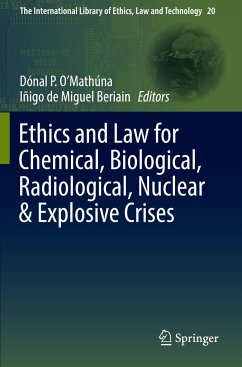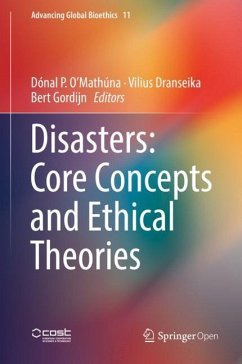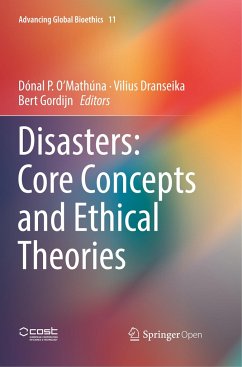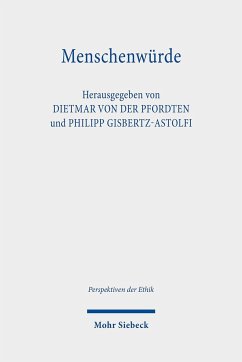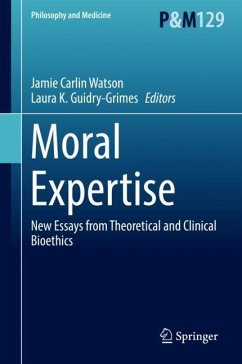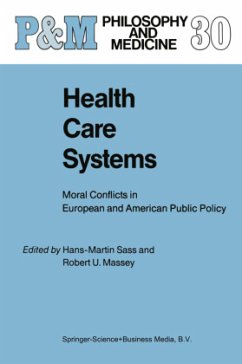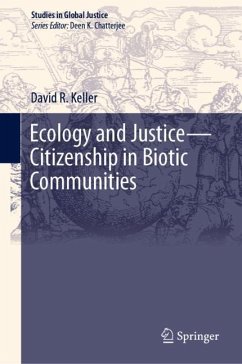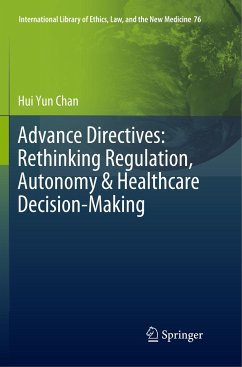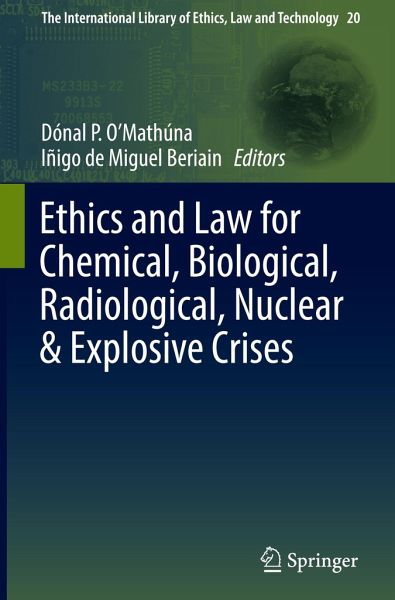
Ethics and Law for Chemical, Biological, Radiological, Nuclear & Explosive Crises

PAYBACK Punkte
38 °P sammeln!
This book provides a current analysis of the legal and ethical challenges in preparing for and responding to chemical, biological, radiological, nuclear and explosive (CBRNE) crises. From past events like the Chernobyl nuclear incident in Russia or the Bhopal chemical calamity in India, to the more recent tsunami and nuclear accident in Japan or the Ebola crisis in Africa, and with the on-going threat of bioterrorism, the need to be ready to respond to CBRNE crises is uncontroversial. What is controversial is whether we are on a path that adequately prepares us for the next event. The ethical ...
This book provides a current analysis of the legal and ethical challenges in preparing for and responding to chemical, biological, radiological, nuclear and explosive (CBRNE) crises. From past events like the Chernobyl nuclear incident in Russia or the Bhopal chemical calamity in India, to the more recent tsunami and nuclear accident in Japan or the Ebola crisis in Africa, and with the on-going threat of bioterrorism, the need to be ready to respond to CBRNE crises is uncontroversial. What is controversial is whether we are on a path that adequately prepares us for the next event. The ethical and legal scholars in this volume hold that much work remains to be done and offer this book to stimulate further reflection and dialogue around CBRNE crises. This is an indispensable book for both students and scholars of bioethics, international law, public health, as well as for regulators and administrators developing policy and legislation related to public health planning and emergency responses.





